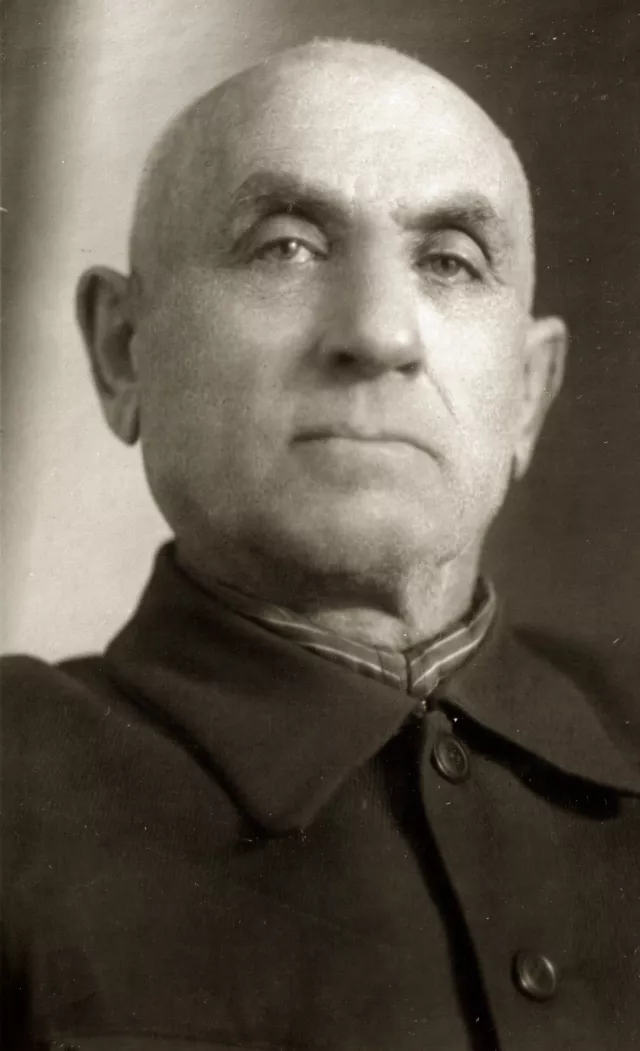This is my father Jacob Bogdanov. The picture was taken in Babruysk in 1940.
My father finished only four classes at school, but he was a very intelligent and active person. He was good at everything he tried to do. He lived for his family, strove to maintain his wife and children, and managed it very well. Father worked hard and was entrepreneurial to earn money.
During the NEP my father came into money due to his entrepreneurial skills, hard labor, business acumen and intelligence. He had a shop for casting mill stones and grain milling, which were in high demand in the collective farms and state-run collective enterprises. We were rather well-off due to my father.
Our happy life was over in 1928, when the powers decided to do away with the NEP. They sequestrated my father's shop. Father was also deprived of food cards. After my father was bereft of his shop, he was involved in construction.
The production of xylolite slabs was launched at that time, and my father made xylolite floors in the houses under construction. This job was not lucrative, but took a lot of efforts and time. Father was aware that our prosperous life was over, and he even feared to be arrested.
In 1930 our family left for Moscow. Father was 42, but full of pep in spite of his bygones. He took pains to make a better living for us. He rooted out the trees around a house. Of course, my brother Syoma and I helped him with that, though he was the strongest and did most of the job. He rooted out a plot of 500-600 square meters and planted potatoes.
Father made a little orchard in front of the house. In summer 1931 the organization that built the railroad was liquidated and the barracks were given to their inhabitants. We became the owners of two rooms in the barrack, but my father was jobless.
He wasn't given a job at the defense plant in Kaliningrad. He found a job in Lyubertsi and was involved in the construction of xylolite slabs. He was familiar with that process as he had had that experience in Babruysk. I went to my father's construction site several times. When I saw my father working there were no doubts he had abundant energy.
The workshop was launched, but there was a fire, and the shop burnt down. We thought that father wouldn't escape prison, though he was innocent. Then they found the worker, who was the arsonist. Father was exonerated, but again he remained without a job.
Then he worked as a foreman in the construction of the Academy of Science in Kaluga. He was so efficient at that job that the management appreciated his work, and even promised to give him an apartment in Moscow as trips to Kaluga on the turnpike took four hours.
My father was unlucky again. Construction was temporarily out of funding. Father went to the wool institute to work as the head of the warehouse and worked there for a rather long time. And at the same time he had another job as a teller in some sort of construction company.
There was Stalin's portrait above the wicket. Once the portrait fell down and the glass was broken. My father was fired the next day, though it wasn't his fault. Then the wool institute was either closed down or merged with another institution, and my father was left without a job.
My father lost jobs many times, but in spite of all he was the only bread-winner of the family, because my elder brothers didn't work at that time. My brisk and honest father was constantly being humiliated. Then, my father worked in the construction of a dwelling house.
He was well-respected and in 1935 he was given a room in a communal apartment of the house he had built. I was at the meeting where my father was given the keys to the apartment, as well as a bonus and a prize for his work. My father took pride in that.

















